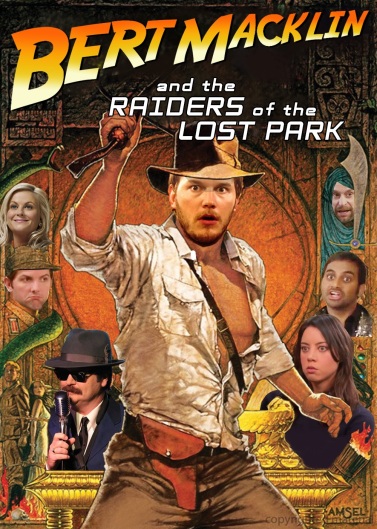The PM wanted to sidestep Parliament using a royal decree because she cannot guarantee that her governing party, the MAJORITY in that parliament, will vote for Brexit. And people are angry with judges?
Full disclosure: I voted remain. And I think the debate during the referendum was shoddy, and the majority far from overwhelming. BUT I have made my peace with the result, and I think that if this many people want to leave the EU, business as usual doesn’t cut it. For us to have been given this vote, such as it was, and for it to then not count for anything is insulting and dangerous.
On Thursday the High Court ruled that the ministers of the Crown cannot unilaterally trigger the process of withdrawing from the EU — they must first obtain the consent of Parliament. However you voted in the June referendum, I promise you this outcome is the right one for democracy. The court upheld a rule that our forebears fought a civil war and revolution to establish — that powers left over from the days of autocratic Kings cannot be used to nullify rights that we have under the laws of the land, i.e. Acts of Parliament.
To say the judgment has been criticised would be an understatement. The three judges have been branded “Enemies of the People”, traitors, and subjected to personal attacks in the press. The papers are being massively disingenuous and irresponsible — as are the PM and cabinet, for that matter. If you voted Leave in June and feel that the wishes of a majority of the people are now being stymied — that, like Bush v Gore in 2000, a choice that was supposedly democratic is now being decided by a bunch of judges — I understand your concerns, and believe me I would be as outraged as you if a court were being used to subvert the democratic process, even to reach a result I might like. But that’s not what’s happened here. What’s happened is actually far more important than the EU. We’ve been members of the EU for 44 years. What was at stake in yesterday’s case goes back more than 300 years.
“Essentially, they tax us relentlessly, then King George turns around and runs a spending spree” -Alexander Hamilton (sort of)
In 1688, James II was booted out of England, and his daughter Mary and Dutch son-in-law William the Conqueror were invited to take his place. That invitation was from Parliament, and it came with certain conditions, which are in the 1688/9 Bill of Rights. The first and perhaps most important:
That the pretended Power of Suspending of Laws or the Execution of Laws by Regall Authority without Consent of Parlyament is illegall.
That the pretended Power of Dispensing with Laws or the Execution of Laws by Regall Authoritie as it hath beene assumed and exercised of late is illegall.
As you can see from the second line, this clause was motivated by then-recent grievances. James II had by decree dispensed with statutory requirements that certain public officials be Protestant. Charles II before him had purported to suspend all laws penalizing religious dissenters. And their father Charles I had been beheaded after a civil war that started because, among other things, he’d disbanded Parliament for over a decade and widely extended taxes without their consent. You can arguably even go as far back as Magna Carta, which arose out of barons requiring the King to get their consent before levying taxes.
All this is to say that a balance of power between the King and Parliament has always been the bedrock of our unwritten constitution. While councils of barons initially arose as a check on an otherwise sovereign King, modern times have marked a shift of power to the elected legislature. The net result is that Acts passed by both Houses of Parliament and (as a formality) signed by the Queen are the supreme law of the land. We talk about Parliament as sovereign; technically it’s the “Crown-in-Parliament.” And the Crown-outside-of-Parliament, i.e. the monarch (or her agent, the Prime Minister) still has some residual powers known as the Prerogative. Those powers used to include dissolving Parliament, but now primarily concern foreign affairs — declaring war and signing treaties.
“But your Majesty, be realistic! They will force you to sign the treaty” -Senator Palpatine
The Crown alone retains the power to enter into treaties. But those treaties cannot impose any obligations on (or give rights to) British subjects unless Parliament passes an Act that turns the provisions of that treaty into enforceable rules of UK law. So in 1972, after the Crown signed the Rome Treaty Establishing the European Communities, Parliament passed the European Communities Act.
The question for the court was: after Parliament has done that, can the Crown use its prerogative power to un-sign the Treaty and leave? The court decided that no it can’t. The 1972 Act that Parliament passed conferred rights on Brits that come from the European Treaties and the smorgasbord of EU laws passed since the 1950s; for example the right of businesses to trade freely and equally in other member states, and to sue those states if they’re treated less favourably than their nationals. For the Crown to deprive Brits of those rights without Parliament’s consent would be unconstitutional.
Does it make a difference that in this particular case the executive is taking an action that a majority of voters asked for? Well, when Parliament didn’t say (or decide) what status or weight that referendum decision was supposed to have, no, legally speaking it doesn’t make a difference. But that’s not the judges’ fault. That’s Parliament’s fault.
Watering down our constitution to get a superficially democratic result on this occasion would create a much bigger threat to democracy that’d continue even when the EU is a distant memory. Nobody should want a precedent that hands such unchecked power to the executive. If the Prime Minister is permitted to take unilateral actions that essentially nullify Acts of Parliament, who’s to say it won’t happen in a future instance where it doesn’t coincide with popular will. For instance, remember TTIP? The massive US-EU free trade treaty being negotiated in secret? Something that reportedly would allow privatization of the NHS, weaken food and banking regulations, cede British jobs to the US with its laxer employment laws and permit companies to sue the UK in foreign tribunals for compensation because democratically passed laws cut away at their profits. If you start carving away at the rule that international dealings can’t change domestic law without Parliament’s consent, you can bet a government will jump to push the boundaries of any exceptions it can.
“Power resides where men believe it resides.” – Lord Varys
Remember that our executive branch is not separate from parliament like a medieval King or the President of the USA. In the US, the independently elected president has his or her own mandate (and so for instance, the US Supreme Court did not stop Jimmy Carter from taking the US out of a treaty without consulting the Senate). The UK prime minister and government’s mandate comes from the fact that they hold a majority in the Commons. So why do Theresa May and Brexitary David Davis think they have to use royal powers and sidestep the very institution that enables their government to exist? Partly perhaps to create that sneaky precedent for unilateral action. But mostly because they’re not sure Parliament will vote for it. They’re not sure their own governing party, by definition the majority in that parliament, will deliver the votes on a policy it said it would carry out (though the referendum was not legally binding, the official pamphlet stated “the government will implement what you decide”).
Since the government took sides and advocated Remain but it lost, you might normally expect it to be met with a no-confidence vote and an election. But the referendum was not fought along party lines. There were leavers and remainers on all sides. So while the government lost (and the PM felt the need to resign), its party as a whole has still clung to power, and someone who really believed we should Remain is now the Prime Minister vehemently leading the charge to Leave. She is apparently so eager to leave that she doesn’t want the parliament that her party controls to vote on it.
We know many MPs are not happy with the referendum result, much like half the country. This referendum, unlike the 2011 one to change the voting system, was not set up to be binding (so who knows why the official pamphlets said “the government will implement what you decide”). And MPs aren’t there simply to be mouthpieces of the electorate. As parliamentary legend Edmund Burke put it in 1774:
To deliver an opinion, is the right of all men; that of constituents is a weighty and respectable opinion, which a representative ought always to rejoice to hear; and which he ought always most seriously to consider. But authoritative instructions; mandates issued, which the member is bound blindly and implicitly to obey, to vote, and to argue for, though contrary to the clearest conviction of his judgment and conscience,–these are things utterly unknown to the laws of this land, and which arise from a fundamental mistake of the whole order and tenor of our constitution.
Our representative, Burke said, owes us “his judgment; and he betrays, instead of serving you, if he sacrifices it to your opinion.” If we don’t like his or her decision, we get rid of them at an election. Well, except the Lords.
It is legitimate for MPs to air and act on their genuine concerns about what kind of Brexit options can be achieved that will do justice to everybody including the half of the country who didn’t want it (especially Scotland), and the EU citizens who didn’t get to vote but whose lives are hugely affected by it. It is also legitimate for MPs to oppose it (but they have to give some weight in their minds to the outcome of the vote rather than writing it off as “madness“). Parliament should debate and vote on a bill empowering the government to trigger Article 50. The government should whip its members in both Houses in favour of triggering it (I’m going to focus on the Commons here; if it passes there we can assume they’ll use the Parliament Acts to override a Lords veto; that’s why I say it has to be a bill). If their majority carries it, or a combination of pro-leave Tories and Labourites do, great. If Tories rebel and it fails, then the government has lost the people’s confidence and there needs to be a general election. Every mainstream party should grapple with the fact that pledging to Remain could result in incompetent single-issue parties taking their seats, and think about just setting out a vision for the best version of Leave.
Those three judges did nothing more than apply the most obvious rule of the British Constitution. If Parliament seems poised to act in a way that makes the referendum it gave us a dead letter, that’s not the judges’ fault. It’s the fault of the legislature and specifically, the fault of the entity that controls it — the very government that’s gleefully and irresponsibly watching as the judges take insane levels of hate.



